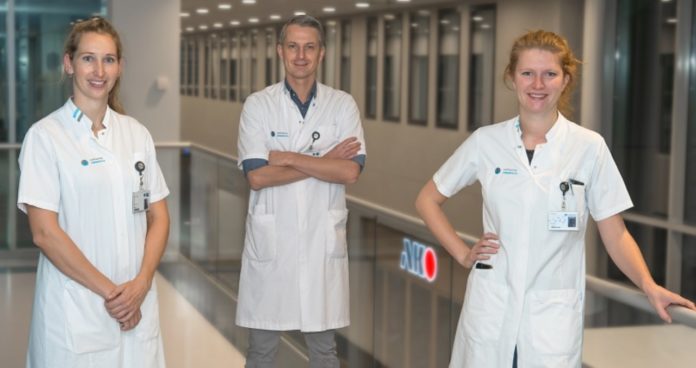
Catharina Hospital is in search of a breakthrough for treating colorectal cancer patients.
The hospital has launched a large-scale international study into the treatment protocol of patients with recurrent rectal tumours. “It’s currently not clear how this patient group can best be treated,” s researcher, PhD candidate, Stefi Nordkamp.
Eight Dutch specialised hospitals, including Catharina, treat patients with this condition. These centres of expertise are looking for new traditional treatment combinations. These are surgery, radiotherapy, and chemotherapy.
High death rate
Using all these approaches result in some improvement. Recurrent colorectal cancer, however, remains a disease with a high mortality rate.
“It’s tricky to operate in that area. Patients who repeatedly get tumours in this area often developed scar tissue. This makes it even more difficult to do follow-up surgery. “Surgery patients, therefore, always receive pre-treatment,” explains surgeon, Dr Pim Burger.
“That shrinks the tumour which improves the chance of complete removal. Patients now receive chemoradiation as a standard before surgery. That’s radiation combined with chemotherapy medication.”
Pre-surgery treatment
The Catharina Hospital study will determine whether adding additional rounds of chemotherapy to the pre-treatment shows more favourable results. “We already treat patients, whose rectal tumours have returned, in this way,” says Nordkamp. “The tumour has a noticeable reaction.”
“It shrinks and, sometimes, disappears altogether. However, we don’t yet know whether patients’ prognosis will improve. Or if the treatment’s unnecessarily severe and prolonged.”
The study includes 364 patients in various countries. “We hope we can better care for this specific group of patients in the future. At Catharina Hospital, in the Netherlands and worldwide,” adds Nordkamp.
Catharina Hospital will roll out the study nationally and internationally. At the beginning of this year, the hospital’s colon cancer programme received a €3 million grant. It was from the Dutch Health and Care Innovation Research Foundation.
Collaboration
The study aims to make a significant contribution to the quality of care in the Netherlands. Improving and strengthening cooperation between Dutch hospitals is also an essential part of the project. “This collaboration and research project represents an important step forward. That’s for the prognosis and quality of life of colorectal cancer patients worldwide,” says Burger.
Catharina Ziekenhuis received a €6 million grant for scientific research into complex conditions. These are in the field of colorectal cancer and cardiovascular diseases. The two subsidies amount to €3 million each.
Source: Catharina Hospital
Translator: Melinda Walraven















